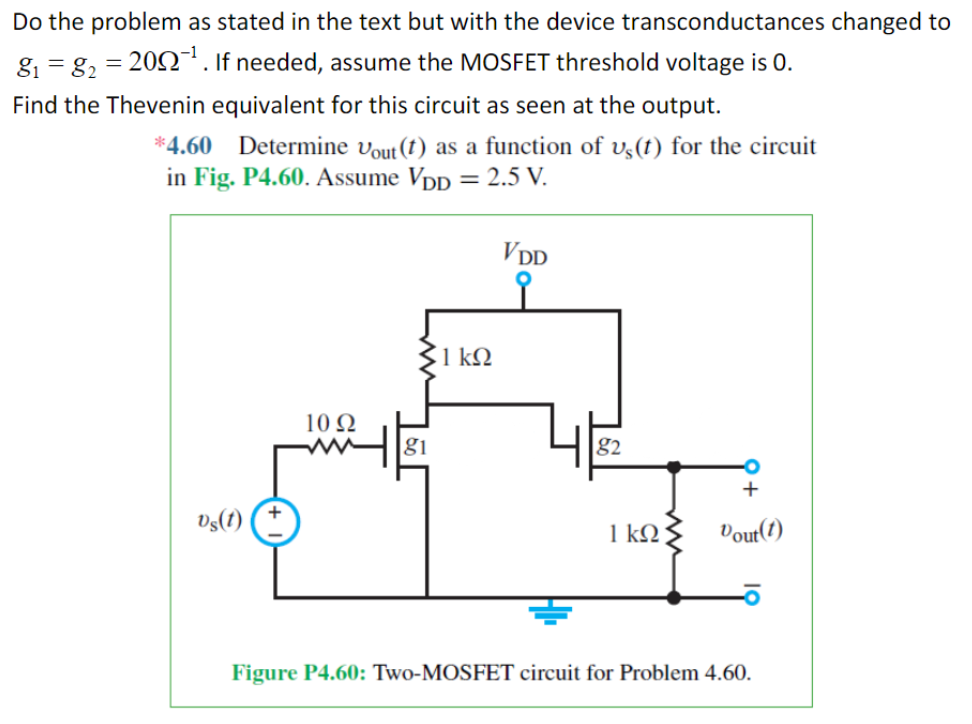Do the problem as stated in the text but with the device transconductances changed to g1 = g2 = 20 Ω−1. If needed, assume the MOSFET threshold voltage is 0. Find the Thevenin equivalent for this circuit as seen at the output. *4.60 Determine vout (t) as a function of vs(t) for the circuit in Fig. P4.60. Assume VDD = 2.5 V. Figure P4.60: Two-MOSFET circuit for Problem 4.60.
